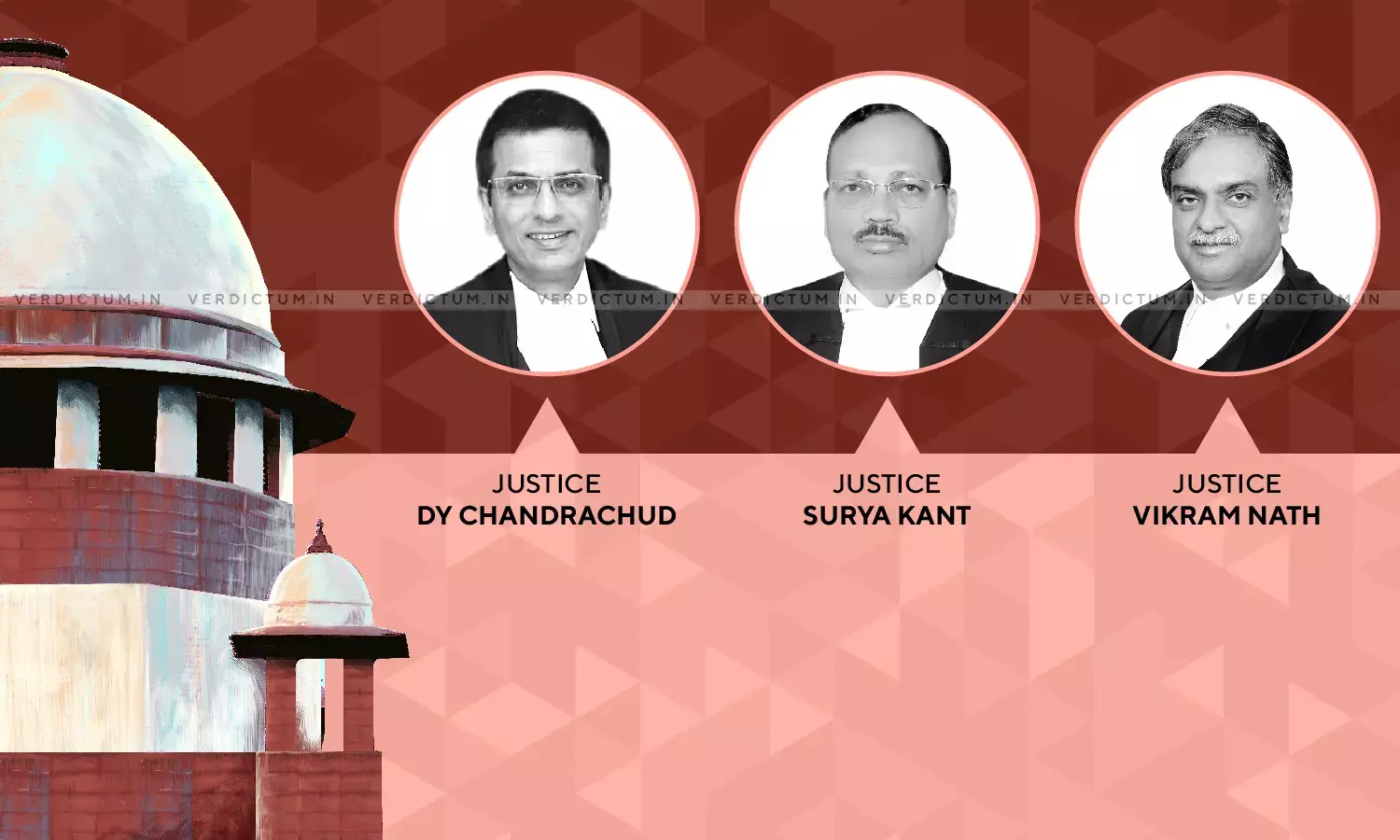Consumer Forum Has Jurisdiction To Decide Dispute Between Telecom Company And Consumer – SC Dismisses Appeal Filed By Vodafone-Idea

A three-judge Bench of Justice DY Chandrachud, Justice Surya Kant, and Justice Vikram Nath has held that telecom services are not excluded from the jurisdiction of the consumer forum under the Consumer Protection Act.
In this context, the Bench opined –
"…the definition of the expression 'service' in Section 2(o) of the Act of 1986 was wide enough to comprehend services of every description including telecom services."
Counsel Mr. Aditya Narain appeared for the Appellant – Vodafone Idea Cellular Ltd. before the Apex Court.
An appeal was preferred by Vodafone Idea Cellular Ltd. assailing the judgment of the National Consumer Disputes Redressal Commission (NCDRC). The issue in the case was whether Section 7B of the Indian Telegraph Act 1885 ousts the jurisdiction of the consumer forum in deciding a dispute between a telecom company and a consumer.
In this case, the Respondent had alleged that he was billed exorbitantly for the period November – December 2013, which according to him was an overcharge. Thereafter, he instituted a consumer complaint seeking compensation in the amount of Rs. 22,000 together with interest along with consequential reliefs.
The Appellant raised an objection to the maintainability of the complaint by placing reliance on General Manager, Telecom v. M Krishnan and Another.
The District Forum had dismissed the application and directed that a written statement must be submitted by the Appellant on all issues, including the issue of jurisdiction. It was further observed that the Appellant – a private service provider is not a telegraph authority under Section 7B of the Indian Telegraphic Act. This was upheld by SCDRC.
The matter came up for consideration in revision before NCDRC which had affirmed the view of SCDRC.
The Appellant contended before the Supreme Court that Section 7B of the Telegraph Act provided a statutory remedy of arbitration, upon which the jurisdiction of the consumer forum was ousted.
The Apex Court relied upon the case of Emaar MGF Land Ltd. v. Aftab Singh in which it was held that an arbitration agreement under the Arbitration and Conciliation Act would not oust the jurisdiction of the consumer forum to entertain a complaint of deficiency of goods or services.
Further, the Bench held that the remedy of Arbitration under the Telegraph Act is of a statutory nature would not oust the jurisdiction of the consumer forum.
Additionally, the Court noted, "The Act of 1986 and its successor, the Act of 2019 are subsequent enactments which have been enacted by Parliament to protect the interest of consumers. Hence, an ouster of jurisdiction cannot be lightly assumed unless express words are used or such a consequence follows by necessary implication."
The Court held that the judgment in M Krishnan (Supra) was not applicable to this case as the decision rendered was incorrect on two grounds -
First, it failed to recognize that the Act of 1986 is not a general law but a special law that has been enacted by Parliament specifically to protect the interest of consumers. Second, even if it is assumed that the Act of 1986 is a general law, it is a settled position of law that if there is any inconsistency between two legislations, the later law, even if general in nature, would override an earlier special law.
The Bench observed that it would be open for the consumer to opt for the remedy of arbitration, but there is no compulsion in law to do so and it would be open for the consumer to seek recourse to the remedies which are provided under the COPRA.
Accordingly, the Court affirmed the judgment of NCDRC which had held that the District Forum has the jurisdiction to entertain and try the complaint and dismissed the appeal.
Click here to read/download the Judgment

